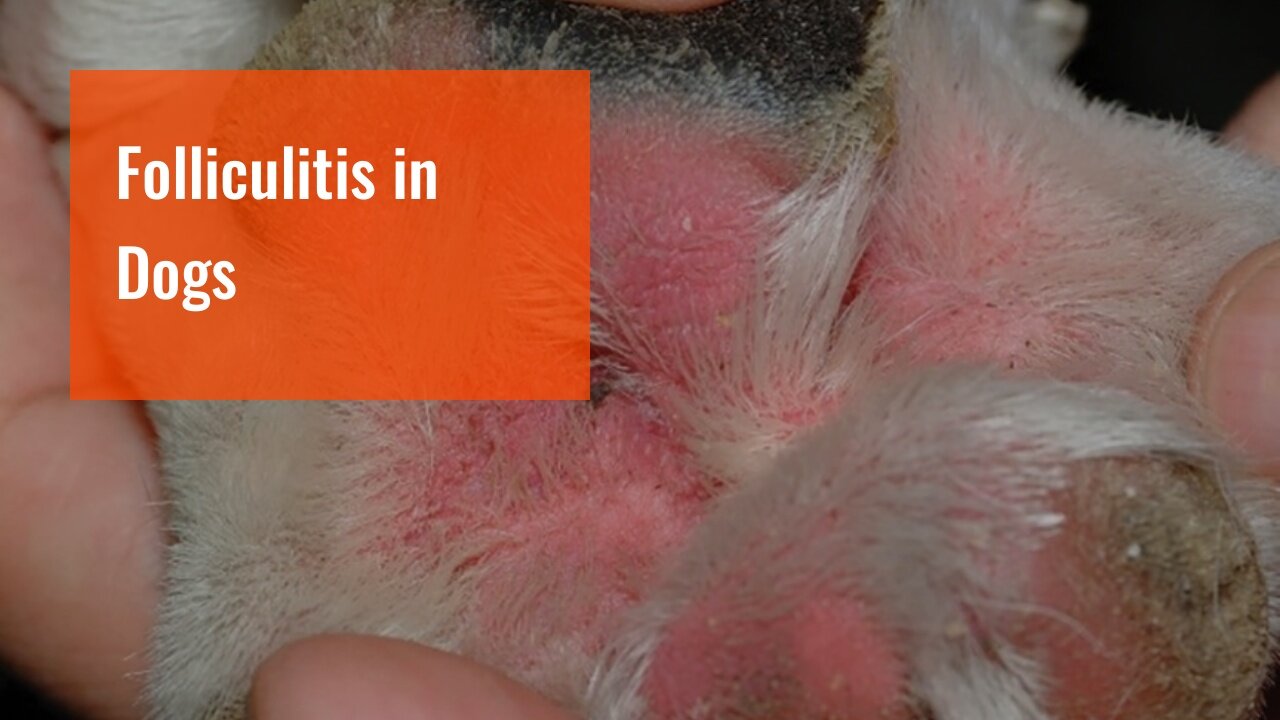Premium Only Content

Folliculitis in Dogs
Folliculitis in Dogs https://www.topdogadvisor.com/
Folliculitis refers to inflammation of hair follicles. Inflammation occurs when the body responds to injury or infection. When hair follicles are infected by bacteria, it sends inflammatory cells that attack the bacteria and repair the damaged tissue. Inflamed hair follicles may be caused by ectoparasites (a fungus), an underlying hormonal disorder or trauma from itching and hypersensitivity (allergy). This condition is also known as superficial pyoderma. It refers to the hair and epidermis, while pyo and derma are both words for pus. Folliculitis can happen anywhere on a dog’s bodies, but it is most common in warm, moist places such...
Folliculitis refers to inflammation of hair follicles. Inflammation occurs when the body responds to injury or infection. When hair follicles are infected by bacteria, it sends inflammatory cells that attack the bacteria and repair the damaged tissue. Inflamed hair follicles may be caused by ectoparasites (a fungus), an underlying hormonal disorder or trauma from itching and hypersensitivity (allergy). This condition is also known as superficial pyoderma. It refers to the hair and epidermis, while pyo and derma are both words for pus. Folliculitis can happen anywhere on a dog’s bodies, but it is most common in warm, moist places such as the lips, nose, neck, vulva and base of the tail. Folliculitis can also be developed in the axillary (or armpits, as they are known on human bodies), groin and spaces between your toes. Although this is a mild case, the presence of an epidermal collarette can indicate an infected folliculcle. To determine the source of the irritation to the skin, it’s a good idea for your dog to visit the vet. Jennifer Bailey, DVM. Macules are small, flat red spots on the skin of your dog that indicate bacterial folliculitis. The macules will become papules as the condition progresses. Papules can become enlarged and filled with pus. This creates a small white spot in the center of the raised red circle. A pustule is a pustule in dogs that fills with pus. In humans, this would be a pimple. Folliculitis can be itchy (itchy), and your dog may scratch or lick at the lesions. Scratching and licking papules or pustules can cause them to burst and release fluid from the papules. The crust forms on the pustules and papules when the clear fluid and pus dry. These crusty red circles will grow larger if your dog keeps licking them. These are epidermal collarettes. Pyoderma There are three types: surface, shallow, and deep pyoderma. Surface pyoderma refers to an infection of the skin’s surface. Surface pyoderma refers to an infection on the skin’s surface. Folliculitis refers to an infection of the hair and skin follicles. Deep pyoderma, on the other hand, is an infection of deep layers of the skin. Folliculitis: General Treatment A medicated shampoo may be used to treat folliculitis. This will reduce the amount of bacteria on the skin, as well as relieve the discomfort and pruritus. An oral antibiotic will likely be used as well. Typically, a dog will need an oral antibiotic for one week until his symptoms improve. It may take up to two weeks, but it usually takes four to six weeks. Folliculitis Treatments The bacterial infection of the hair follicles and skin is almost always secondary. Folliculitis can only be treated if the original cause is known. These are the most common precipitating factors. Demodicosis Demodex mites, also known as hair follicles or sebaceous glands in your dog’s skin, are responsible for this condition. Demodex mites are considered a companion mite. They live in the hair follicles and sebaceous glands of your dog’s skin, but they do not cause any harm to your dog. Demodex mites can make a dog itchy if their numbers suddenly rise. If the balance between Demodex mites in the skin microenvironment and the population of mites explodes, the mites are considered parasites rather than commensals. Because puppies are young, the Demodex mite is more likely to cause pruritus in them. Demodicosis can also occur in adult dogs, but it is possible to have an immunocompromising condition that allows for the Demodex mite’s proliferation. Demodex mites do not transmit disease to dogs. To check for Demodex mites, your veterinarian might recommend a skin scrape test. There are many treatments for demodicosis. Amitraz, a dip treatment for demodicosis (brand name Mitaban) is the only FDA-approved medicine. Amitraz c...
-
 LIVE
LIVE
GamersErr0r
38 minutes agoMooning My Community
53 watching -
 2:22:59
2:22:59
Banks Atkin Live
3 hours agoChilling playing Games & Vibin
23K1 -
 LIVE
LIVE
Dragoon_B
4 hours agoNothing crazy - just Counter Strike + Valorant
52 watching -
 18:03
18:03
Stephen Gardner
4 hours ago🔥YES!! Trump GETS HUGE win in 4th district court!!
42.8K309 -
 LIVE
LIVE
G3T
2 hours ago🔴GET | not saying it
66 watching -
 15:35
15:35
DeVory Darkins
9 hours ago $2.14 earnedGavin Newsom drops CRUSHING BLOW on Democrats
6.1K52 -
 LIVE
LIVE
Etheraeon
5 hours agoPUBG: Battlegrounds | Total Bot Domination
83 watching -
 LIVE
LIVE
House of Jacobs
2 hours agoElden Drinks - Drunk Souls Series
75 watching -
 LIVE
LIVE
BubbaSZN
4 hours ago🔴 LIVE - SPIDER-MAN 2 - PART 3
96 watching -
 1:43:06
1:43:06
Roseanne Barr
2 days ago $46.24 earnedBit*h Better Have My Money W/ Michael Malice | The Roseanne Barr Podcast #92
125K148